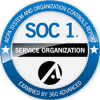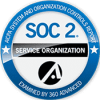Successful person-centered healthcare requires robust care management with collaboration across payers, providers, and community resources to personalize care and address all patient issues in a comprehensive, holistic approach to care.
The care management software you choose can have a huge impact on your ability to provide quality care. The right technology can empower care teams with the right information to deliver an effective and coordinated care experience, enabling efficient, collaborative care for diverse teams to treat complex populations.
Page Content
Choosing the Right Care Management Software
Evaluating care management systems can be an overwhelming process. It is critical to evaluate not only your organization’s needs and the needs of your members, but also the systems currently in use across your payers and providers so you can select a technology that brings together disparate information that can be seamlessly and securely shared and is interoperable with your key systems.
13 Criteria To Help You Choose the Best Care Management Software
The right technology enables a care team to collaborate as a team that delivers care in an informed way that improves outcomes, not as a group of individuals documenting facts and actions. Important criteria for evaluating care management software include:
1. Interdisciplinary care teams
A holistic approach to care requires an interdisciplinary care team comprising payers, providers, and community resources to communicate and collaborate in real-time for the benefit of the patient.
2. Integrated physical, behavioral, and social health
Effective whole-person care enables organizations to address not only physical health, but also an individual’s behavioral and socioeconomic needs as a comprehensive approach to care.
3. Common patient record and care plan
A single, comprehensive 360° view and care plan that integrates information from a broad spectrum of sources enables collaboration across disciplines, ensures better care, and reduces unneeded or duplicated services.
4. Analytics and patient identification/stratification
Gaining insights from results enables organizations to focus scarce resources on high-risk, high-need, and high-cost populations and analyze data for gaps and other actionable information.
5. Personalized care coordination
Personalizing care orchestration across interdisciplinary teams enables organizations to meet the specific needs of each individual. For best results, use automated person-centered care plans and workflows that meet organizational best practices.
6. Clinical and social assessment
The ability to accurately and consistently evaluate the health and well-being of an individual—including the behavioral and socioeconomic issues that are barriers to treatment—and incorporate that data into a plan of care is critical to improving outcomes.
7. Integrated, automated workflows
Tight integration and automation across care and utilization management workflows improve efficiency and ensure continuity and consistency from assessment through authorization, referrals, engagement, care planning, and monitoring to reduce admissions, close care gaps, and improve outcomes.
8. Patient/member engagement
Engaging with individuals receiving care creates stronger partnership, improves adherence, and drives satisfaction.
9. Customizable data capture and reporting
Flexible reporting enables organizations to track and trend quality measures and supports improvement, innovation, accountability, and compliance.
10. Robust interoperability and integration with key systems
Interoperability and data sharing makes information available to the right people at the right time in the right location, integrating systems to work together in joint workflows to support collaboration.
11. Compliance
Technology that supports regulatory requirements helps organizations manage performance, promote compliance, and reduce risk.
12. Flexibility and configurability
Software that can be configured without requiring vendor coding not only saves time and resources, but enables organizations to be more agile and adapt quickly to changing business and regulatory requirements.
13. Security
Make sure the technology you choose uses the highest standards of privacy, security, and risk management to safeguard protected health information and comply with regulations and standards.
Incedo Enterprise Care Management Platform
InfoMC was founded to pioneer the use of behavioral and social determinants and community resources to more efficiently and effectively manage health and eliminate the barriers that get in the way of quality medical care. Our Incedo care management solution supports whole-person care for complex populations and is preconfigured for the Special Needs Plan (SNP) model of care. Our deep expertise in implementing healthcare management solutions to support a wide range of business models will help you improve how you manage your populations so that you meet your business goals.
Our fully integrated health care management platform enables organizations to seamlessly manage how care is authorized, coordinated, and delivered, with a high degree of configurability enable organizations and flexibility to evolve programs as business and compliance requirements change.
For more information click here, or contact us directly today!








